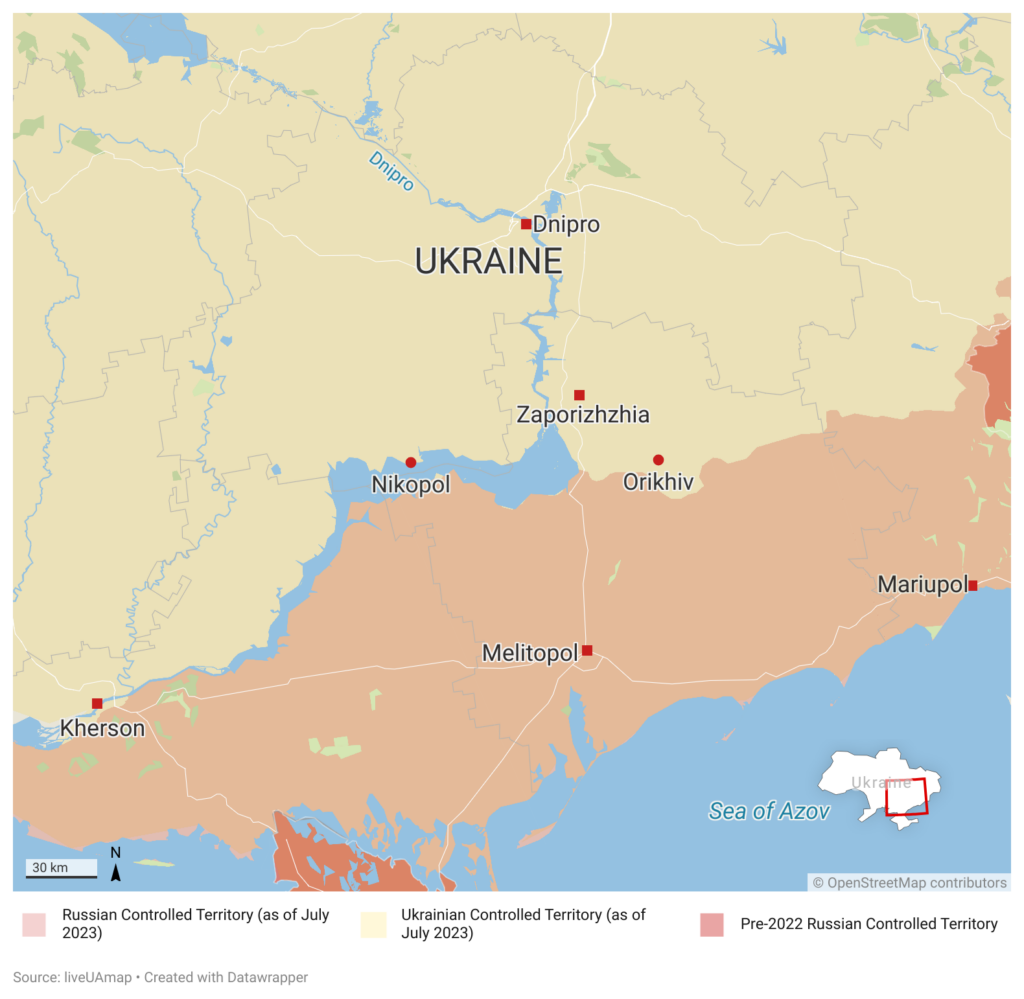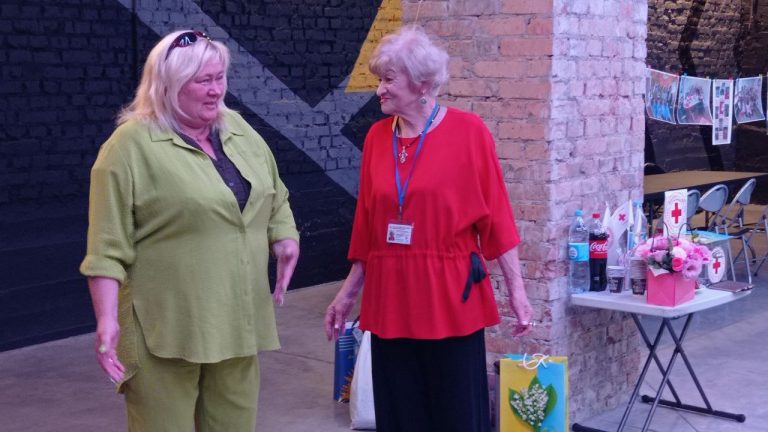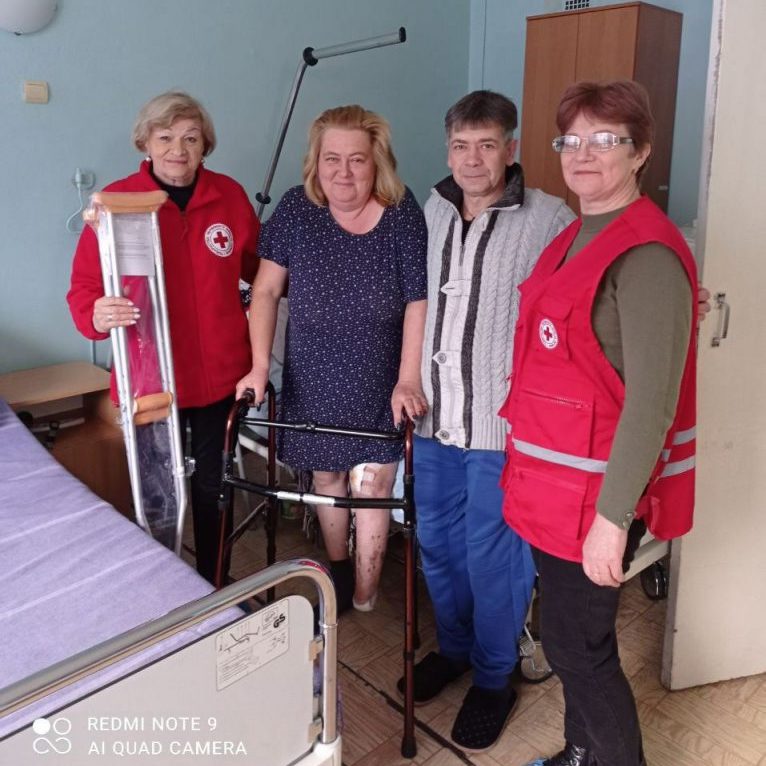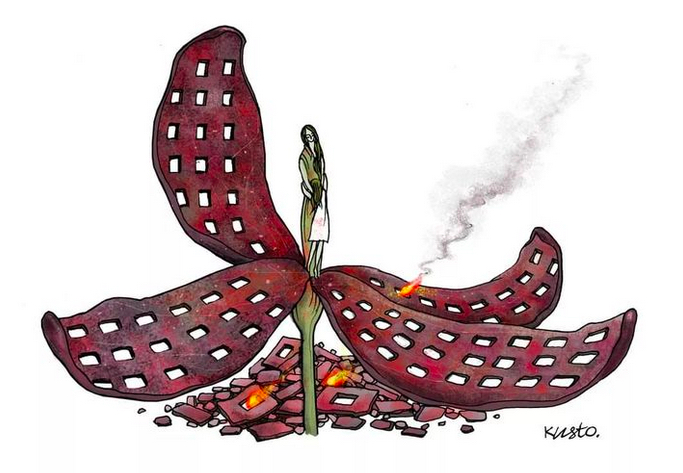One morning in November 2022, Natalia Lichman was busy at work in a food-distribution centre of Orikhiv. This town in Ukraine’s Zaporizhzhia region is 10 kilometres from the frontline. The humanitarian hub was proving invaluable in these most difficult times, and hundreds of people were waiting in line there. Natalia, 47, worked for the municipal social-services department.
Since the beginning of the full-scale invasion of Ukraine, Orikhiv has suffered constant shelling, sometimes lasting 14 hours at a time. The town has no surviving buildings, no stable electricity or water supply. People are regularly killed by direct hits to their homes and while walking down the streets.
Despite the conditions, Natalia went on working. The city's population had decreased more than tenfold since the beginning of the war, but there were still people living there. And they needed her help.

At the food-distribution hub, which was located in a school, she and other volunteers received bread and other items and distributed them to the elderly.
"We looked after people who had no one to rely on but us", recalls Natalia. "The war made everyone's problems worse. That day, the morning began with routine work. Nobody could have imagined that the world would turn upside down in an instant." Natalia's hands tremble with emotion as she remembers the events.

The volunteers' work was interrupted by a massive explosion, followed by a raging fire. The centre had come under Russian rocket attack.
A maintenance worker was killed on the spot, and two other women were wounded. Natalia was engulfed in a scene of horror. Flames, smoke, dust and people's screams mixed together. Natalia suffered a severe blast injury, and woke up with her foot blown off and numerous shrapnel wounds. Her ribs, torso and eyes all hurt unbearably.
Natalia vents her outrage: "They targeted us when there were people there. They hit an unprotected school building, an open space where people find shelter, where we felt protected! Now that the time of the tragedy has passed, I feel that I have witnessed an incredible crime that I will tell my grandchildren and great-grandchildren about." She emphasises that there was no military facility near the centre.
The first steps
The first thing Natalia did when she awoke amidst the ruins and blood was to dial the number of the person closest to her – her husband Oleksandr.
"Sasha and our son came immediately", Natalia recalls. “Mykyta was thirteen at the time. What he saw was horrifying: his bloodied mother with a severed leg, in the middle of a pile of rubble, glass, and dirt. From there, I was taken to the nearest hospital, to the village of Tavriyske. My boy was taken to the regional children's hospital because he had suffered a severe psychological trauma."
The doctors fought for Natalia's every organ, and specialists from several departments joined forces to save her. Natalia underwent a number of surgeries and the amputation of several fingers. Her eye surgeries are still ongoing. In addition, the injury revealed a complicated form of diabetes. The last year for Natalia has consisted of two months in hospital, a short break and then more surgeries.
She is still recovering from the hell she went through, both emotionally and physically. Sometimes she cries. Sometimes she sits still for a long time, deep in thought. But mostly she tries to be active and to walk again.
"For nine years I have been working to help people in need. I have always sympathised with them. And now I find myself in a situation where I feel the care of colleagues, friends and strangers. Human kindness makes me better. I couldn't have done it on my own."

Natalia lists everyone who supports her every day. The list is long, but it is headed by the most important person for a woman – her husband.
Oleksandr has been taking care of his wife since the moment he saw her injured. He looked after her, fed her, and spent the night on hospital chairs to be with her every minute. He was a nurse and a psychologist. He wiped her tears and calmed her despair and supported her as she learned to walk with a prosthesis.
"Love really does heal. My husband and I have been together for 28 years. And I had a dream to dance on our anniversary. So that was a great motivation for me to get back on my feet again." She smiles for the first time since the beginning of the conversation.
The main thing is to survive
Natalia doesn't complain about her fate. But things are not easy for the family, including financially. Her disability pension is about €60 and her husband's carer's pension is about €40. That's the entire family budget. Most of it is spent on medicines for Natalia and her son Mykyta, who has blood-pressure problems after the incident. In addition, the family has to rent lodgings in Zaporizhzhia, a large industrial city in eastern Ukraine. Their own home in the suburbs of Orikhiv was destroyed by shelling.
Naturally, Natalia is worried about what the future holds for their family after the war. The fighting has ruined all her plans, so today she is trying to live one day at a time.
"All I want is victory and peace", she says, holding the hands of her son and husband, who are sitting next to her. "I don't want to hide from the awful siren that is still sounding in Zaporizhzhia. Thoughts of work or other activities simply fade into the background. All my plans can be summed up in three words: to survive, to endure, to live."
👉 This article on the website of the National Union of Journalists of Ukraine
This article was published in partnership with the National Union of Journalists of Ukraine, within the Voices of Ukraine project by the European Centre for Press and Media Freedom and the German foreign ministry.
Do you like our work?
Help multilingual European journalism to thrive, without ads or paywalls. Your one-off or regular support will keep our newsroom independent. Thank you!
















